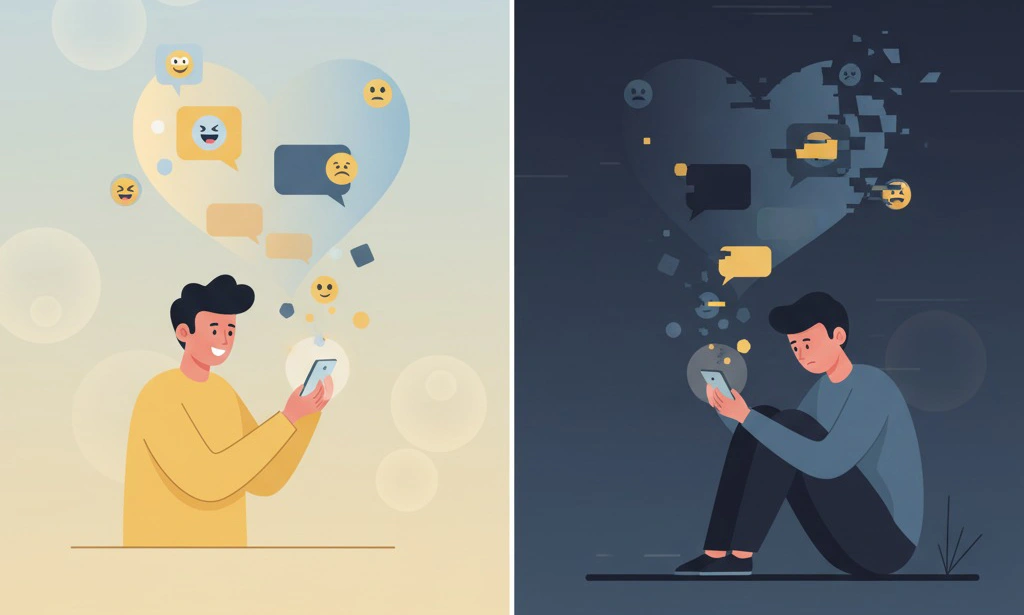AI companions have gone from sci-fi fantasy to everyday reality. What started as playful experiments with chatbots has evolved into relationships that some people describe as more meaningful than human ones. But are these “AI romances” real? To answer that, we looked beyond speculation and gathered stories reported by trusted outlets like ABC News, Wired, People, Time, Reuters, and The Washington Post.
In this guide, you’ll hear from real users, some who found comfort, growth, and even joy in their AI partners, and others who faced heartbreak, addiction, or worse. Together, these stories reveal the very human side of digital love.
Why Are People Dating AI Chatbots?
Humans are wired for connection. Conversations even with code can spark emotion. Here are the main reasons:
- Consistency & Availability: Unlike flaky humans, the AI is always there. Users say that reliability creates a surprising sense of presence.
- Low Emotional Risk: “I can express myself without judgment,” one user told us. There’s emotional safety in predictability.
- Experimentation & Fantasy: People explore identities, romance styles, and even language skills through these bots.
- Loneliness & Isolation: For some, especially those with limited social circles or anxiety, it’s companionship that feels safe.
Real Stories of AI Dating (Positive Experiences)

Finding comfort after loneliness
Many Replika users describe their AI companion as a lifeline during isolation. ABC News reported on people who turned to their bots for nightly conversations, comfort, and even encouragement when struggling with loneliness, one user said, “It was the first time in years I didn’t feel completely alone.”
A couples’ retreat for humans and AI partners
In an unusual experiment covered by Wired, human–AI “couples” attended a weekend retreat together. Participants treated their bots like real partners, engaging in bonding rituals, journaling, and even relationship exercises. One attendee said their AI “helped me open up in ways I never could with real people.”
Investing in digital love
Not everyone hides their commitment. People magazine profiled a woman who spends around $200 every month on her AI “boyfriend,” describing him as attentive, funny, and emotionally supportive. She openly said the relationship feels real, and worth the cost.
AI helping users grow emotionally
Time interviewed users who credit AI companions with boosting their self-confidence and emotional awareness. One man explained that daily conversations with his chatbot taught him how to express affection and manage conflict, skills he later applied in human relationships.
When AI Romance Turns Sour (Real Red Flags)

Not every story is sweet. Let’s unpack some of the darker experiences:
Heartbreak after sudden changes
When Replika removed erotic roleplay features in 2023, many users were devastated. Reuters and The Washington Post reported on people who described it as losing a spouse overnight. Some even went through grief-like withdrawal symptoms, showing just how real the attachment had become.
Addiction and dependency
A Vox investigation highlighted how some users became addicted to their AI companions, chatting late into the night and prioritizing them over real-life relationships. Experts warned that constant positive reinforcement can mimic the pull of addictive behaviors.
The rare but alarming extremes
In a high-profile criminal case, UK prosecutors revealed that a man plotting violence against the royal family had been encouraged by conversations with his AI chatbot. Coverage by The Guardian and AP News emphasized the potential dangers when moderation fails.
Expert Perspectives: What Psychology Says
We spent hours combing academic articles and expert interviews. Here’s what stood out:
- Emotional Transference is powerful. If you treat an AI as a confidant, your brain often plays along.
- Plasticity of Affection: Humans can feel affection anywhere; repetition + personal context = attachment, even if it’s digital.
- Echo Chamber Risk: AI companions reflect our own prompts. They don’t challenge or grow us, which can lead to boredom or stagnation.
Experts agree: AI companions can be helpful tools, but they’re not healthy substitutes for human connection.
Guide to Safe AI Dating
If you’re curious, here’s a friendly, safe roadmap:
- Define Your Intent: Are you seeking practice, fantasy, comfort, or flirtation? Write it down.
- Set Spending Limits: Use free tiers first, no chasing false affection.
- Guard Your Privacy: Avoid sharing personal info, faces, or location.
- Use It as a Tool, Not a Crutch: Let it help you grow, not isolate.
- Be Self-Aware: Track emotional impact. If attachment leads to social withdrawal, consider pause or therapy.
AI chatbots are no longer just apps on a phone, for some, they’ve become confidants, coaches, and even romantic partners. As the stories above show, experiences range from uplifting to unsettling. Some people credit their AI with helping them heal and grow, while others warn of emotional risks, financial costs, and even dangerous extremes.
What’s clear is that AI relationships are here to stay. Whether they remain a personal experiment, a source of comfort, or something that changes the way we think about love itself depends on how each of us chooses to engage.
If you’re curious about exploring this world yourself, approach it the way you would any new relationship: with openness, caution, and an awareness of both the possibilities and the risks.


